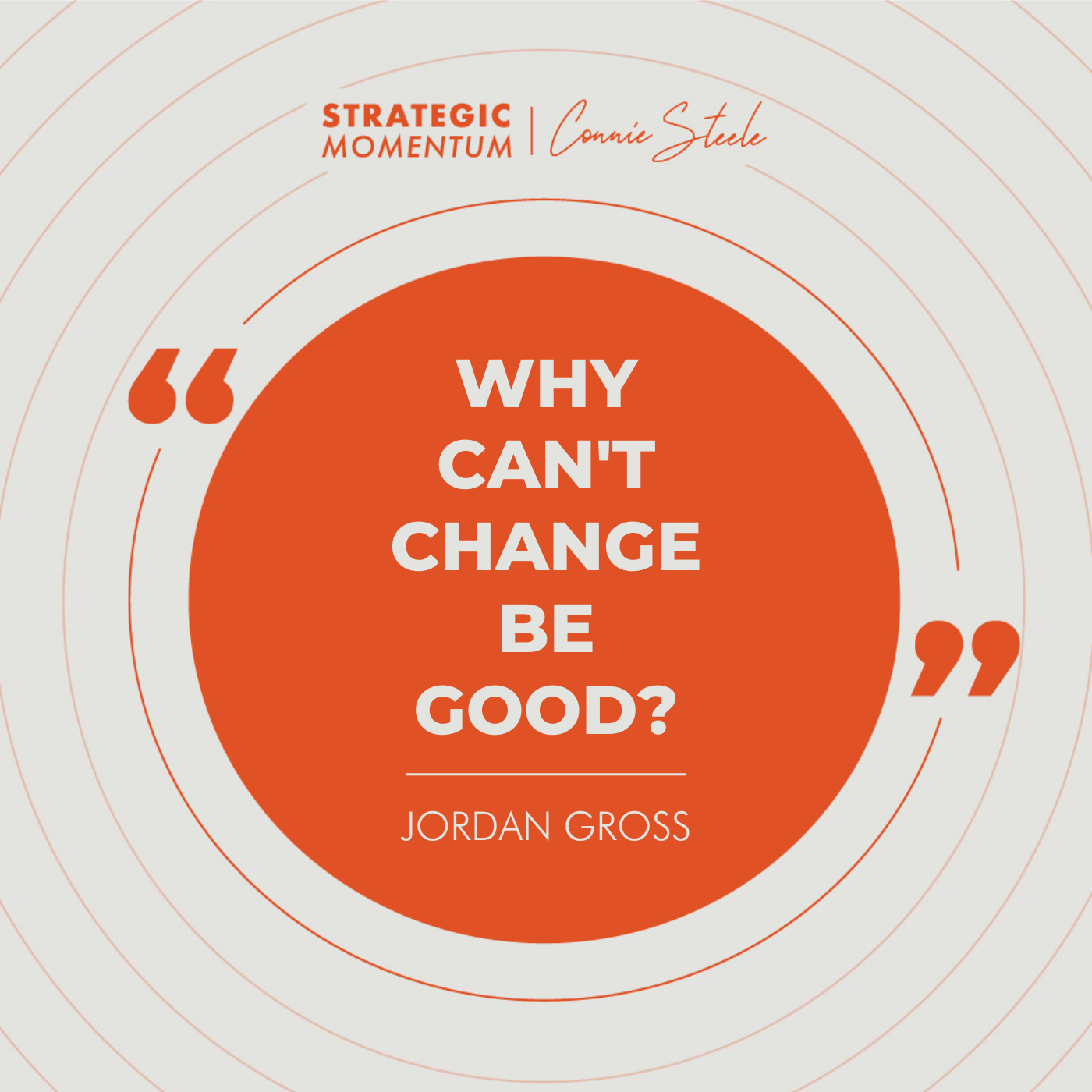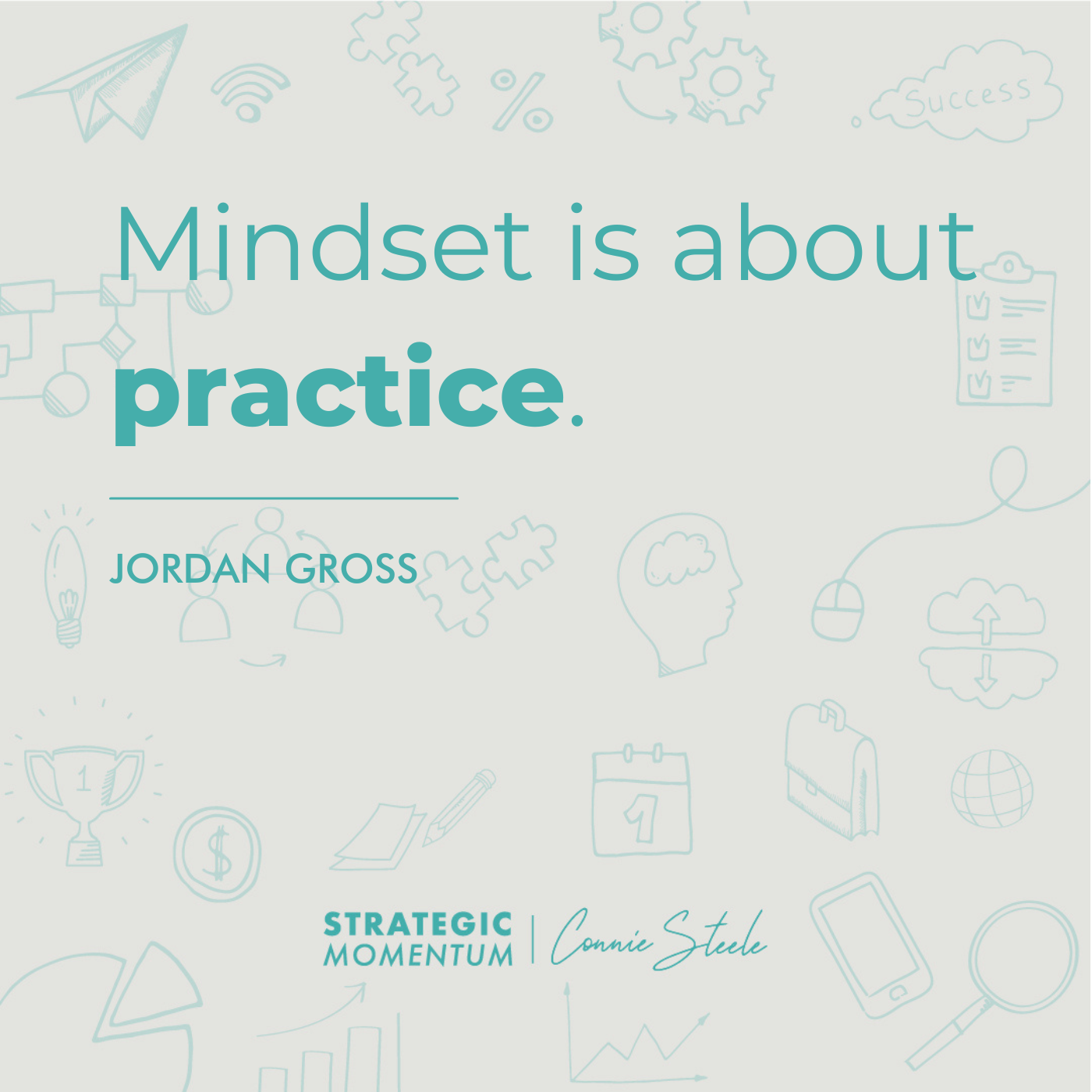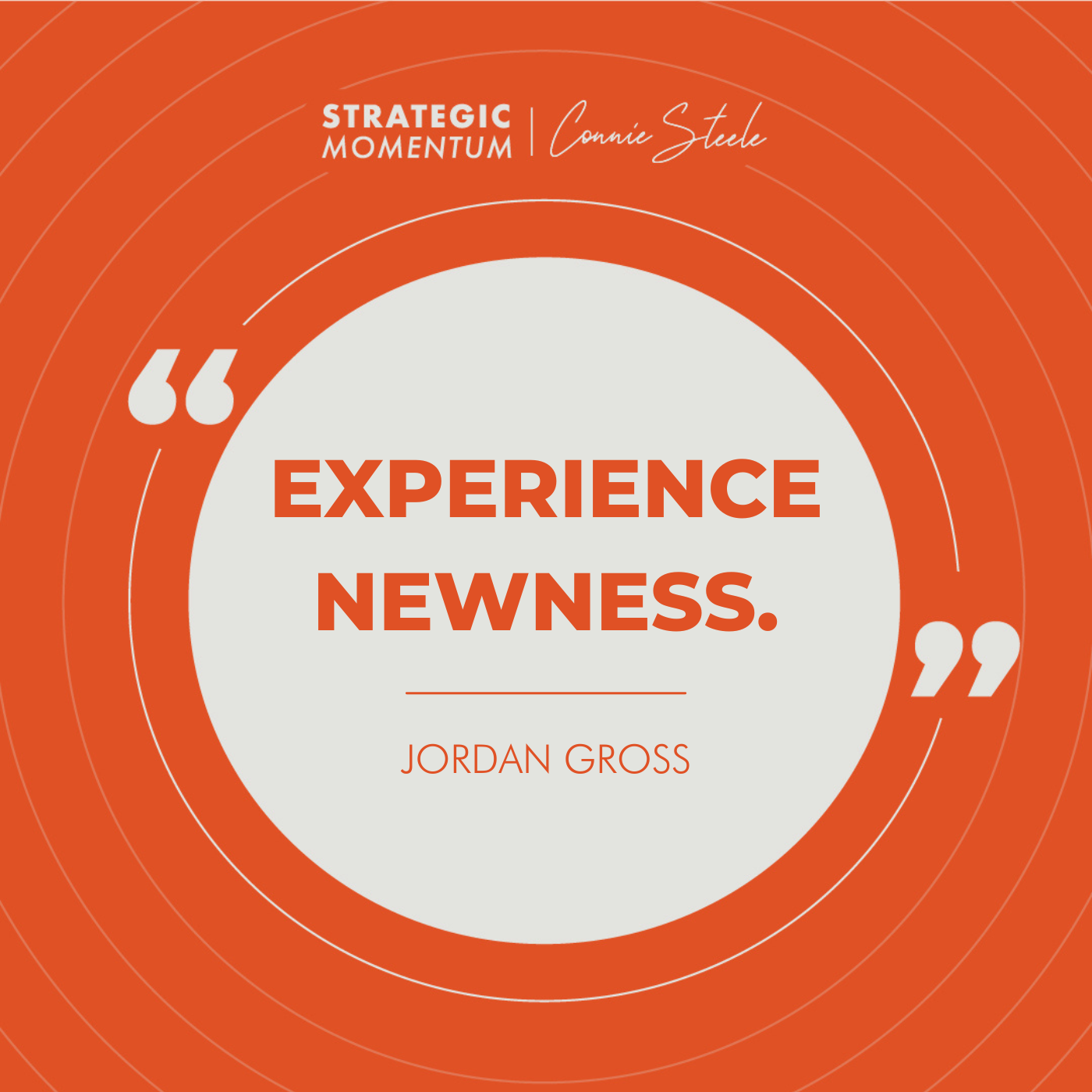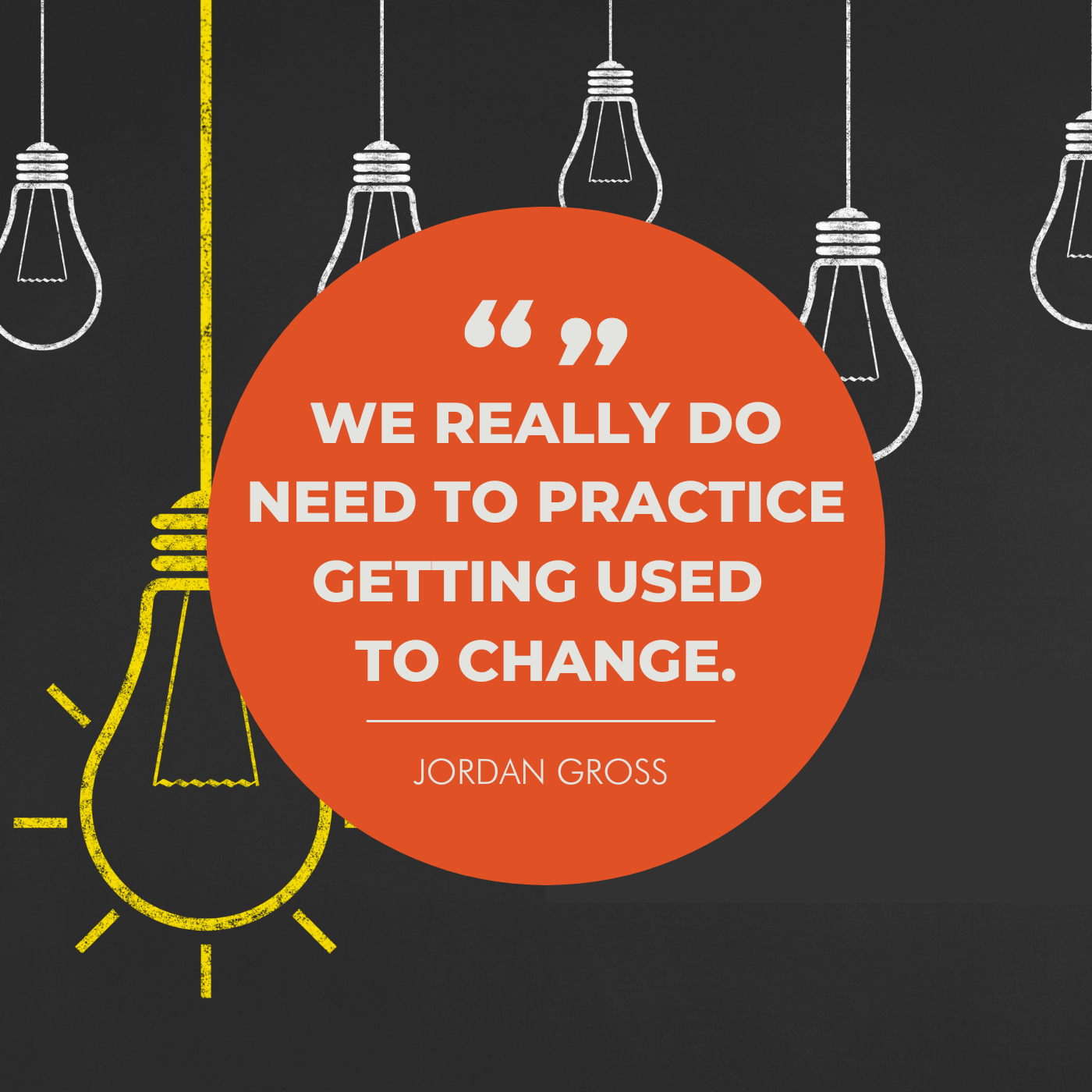Ep. 138 - Write Your Own Story: Mindset Tips for Navigating Change - with Jordan Gross
Find Us Wherever You Listen To Podcasts
We all know change is hard. It makes us feel uncomfortable. It can be a little scary. But change can also be a good thing. Change can be growth. And in the end, we don’t always get to choose when things change.
So what does it take to navigate all of the transitions that life throws at us when they seem to be coming more rapidly than ever before? How do we embrace change, develop, and grow?
Our guest today is Jordan Gross, an author and Mental Health Therapist on a mission to re-imagine personal development — and make it more accessible to everyone.
Jordan’s Career Journey
Jordan has been deeply focused on the personal development and self-help space for years now, in both traditional and non-traditional ways, pivoting between coach, writer, podcast host, TedX speaker, and therapist. And he’s only 28!
His goal is to acquire a treasure chest of opportunities and experiences that life has to offer. As a storyteller, he sees his life as a story of change and evolution and you can see this reflected in his various pivots, from a short rotational experience at a restaurant group to pursuing his own personal development business to becoming a licensed mental health therapist.
Jordan doesn’t necessarily have a major plan or end goal in mind. His path has been driven by curiosity, a deep passion for personal development (both his own and others’), and a “selfishly selfless” desire to to help people. But it’s still scary to jump careers even when you’re passionate about it, it’s a big step to self-publish a book even when you want to share it with the world.
To overcome the fear of change, Jordan tried to cultivate a relentlessly optimistic mindset, which has enabled him to try different paths with less fear of failure.
Mindset Tips for Navigating Change
For Jordan, personal development is all about change, and he believes we can nurture a stronger mindset for managing change by learning to take the pen and write the story of our own lives.
A valuable resource for Jordan was Spencer Johnson’s “Who Moved My Cheese?,” which helped him reframe change as a positive opportunity for growth. And Jordan has tried to carry this message forward in his own work.
In his role as a therapist, Jordan shares with his patients the power of viewing their own life as a story of change.
“If we think about this story like a movie for instance, you don't have a meaningful movie without those moments of change, you don't have a meaningful movie without those periods of adversity, right? So in our own lives, we don't get the opportunity to make this purposeful, fulfilling movie and story of our lives without these points where we have to get through adversity, where we have to overcome obstacles, where we have to experience a little bit of suffering.”
Adopting a new mindset is easier said than done, but Jordan believes you can train your mindset just like you train to learn a new skill or develop your muscles:
Build the practice of change in small, daily ways. For example, try switching up part of your routine, even something as small as which shoe you put on first when you leave the house. It may seem inconsequential, but these little things can help you gradually get comfortable with newness and build the habit of adaptation so that you’re more prepared when you’re confronted with a big change.
Practice telling the story of your own life. Jordan shares a “spin zone” technique, in which you take a ‘bad’ thing that has happened to you and reframe it as a positive story. This can help you internalize the good that comes with the difficult parts of a transition, and developing more optimism really helps mitigate the fear of change.
Change is a sort of amorphous concept. It doesn't always look or feel the same, and it’s largely unpredictable.
But even if we can’t prepare for every single thing life throws at us, we can still prepare for uncertainty. Like Jordan said, mindset is a skill that we can practice daily, even with something as small as putting on our shoes. Learning to sit in the discomfort and fear that comes with change is hard for all of us, but it gets easier the more you try, and this is a skill that I believe will be critical for thriving in the new world of work and life.
Definition of success:
“Success is not about being at the point you wanna be at or having the life you wanna live. Success, for me, is the intentional pursuit of that life. That is what's super, super important to me. It's this intentional pursuit of the life I wanna live, and I think if I have that, I can always feel fulfilled.”
Best work or career advice:
Learn how to fail.
Key Takeaways:
Most of us have a natural fear of change, but Jordan wants us to ask ourselves: why can’t change be good?
Learning to sit in the discomfort and fear that comes with change is hard for all of us, but it gets easier the more you try, and this is a skill that I believe will be critical for thriving in the new world of work and life.
You can build the practice of change in small, daily ways. For example, try switching up part of your routine, even something as small as which shoe you put on first when you leave the house. It may seem inconsequential, but these little things can help you gradually get comfortable with newness and build the habit of adaptation so that you’re more prepared when you’re confronted with a big change.
Practice telling the story of your own life. Jordan shares a “spin zone” technique, in which you take a ‘bad’ thing that has happened to you and reframe it as a positive story. This can help you internalize the good that comes with the difficult parts of a transition, and developing more optimism really helps mitigate the fear of change.
Get clarity on what’s driving your decisions, on your why. Like Jordan, you don’t need to define the end goal of your career or life, but it’s hard to be confident about making a big leap in a moment of uncertainty if you don’t have clarity on what actually makes you more fulfilled.
Resources
Learn more at https://jordan-gross.com/
Connect with Jordan on LinkedIn: https://www.linkedin.com/in/jordangross9











